Peace, stability in the Taiwan Strait balanced on a razor’s edge
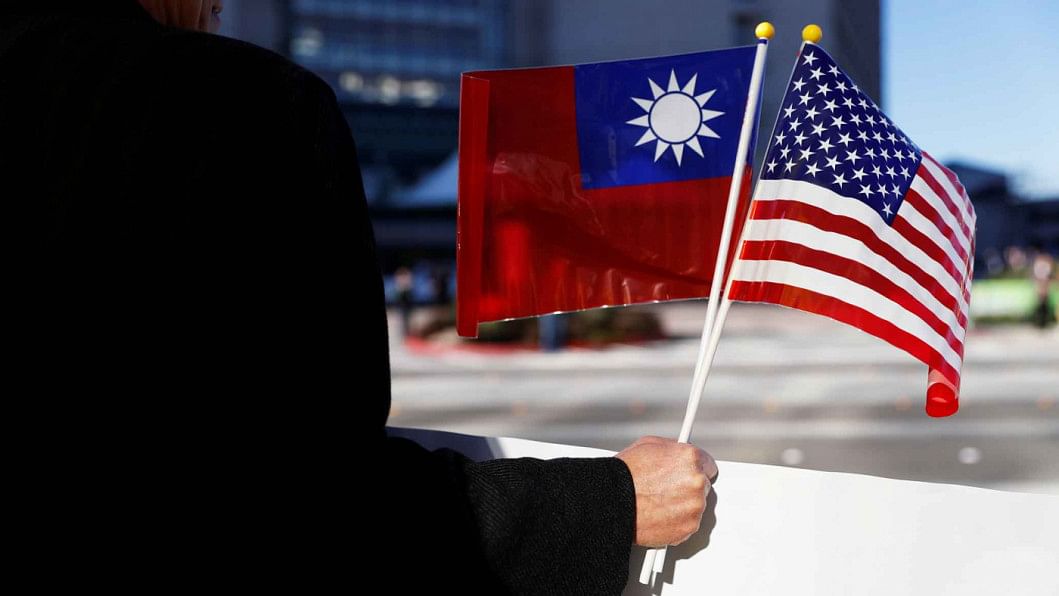
On August 2, Nancy Pelosi, a close ally of US President Joe Biden and the speaker of the United States House of Representatives, published an article in The Washington Post titled "Why I'm leading a congressional delegation to Taiwan." Her message was quite clear, and there was no scope for ambiguity. In her words, "we take this trip at a time when the world faces a choice between autocracy and democracy. As Russia wages its premeditated, illegal war against Ukraine, killing thousands of innocents – even children – it is essential that America and our allies make clear that we never give in to autocrats."
She would carry out her visit on the same day, despite repeated warnings from China. In response, China launched numerous missiles into Taiwanese seas and began a series of massive military exercises around the island. China would also terminate cooperation with the US on crucial subjects such as the climate crisis, anti-drug measures, and military negotiations.
Bilateral relations between China and the US have soured profusely as a result of this visit and the subsequent visits by multiple US lawmakers to Taiwan. And as the potential decoupling between these two geopolitical giants now seems even more inevitable, nations downstream of a possible fallout are understandably anxious. The question that's on everyone's mind is: Why would the US, which has built a geopolitical play of strategic ambiguity around Taiwan, suddenly become so unambiguous in their messaging surrounding Taiwan and China? And a follow-up question is: If the drums of war begin to rage due to this provocation, what could the US do to stop China from carrying out its own "special military operation" in Taiwan?
To adequately answer these questions, one must consider two important factors. The first is the current democratic backsliding around the world. The second is the somewhat unintuitive nature of US-Taiwan relations concerning China.
Due to several key historical events, the US has positioned itself as a champion of democratisation worldwide. This kind of championing of democracies indeed forms the backbone of US geopolitics. The development of strategic relations between the US and Ukraine has become intimate since the Orange Revolution of 2004. Since then, Ukraine has become one of US' largest defence partners and a primary recipient of US agricultural FSA assistance. Therefore, one can understand how big a blow it might have been when Russia invaded Ukraine. However, the US never had any written treatise with the Ukrainian government that would have given them a just cause to intervene when the invasion happened.
In the game of geopolitics, the penalty for warmongering is dire. There is no scenario where a direct conflict between two nuclear powers benefits any nation. Russia had the initiative, however dubious and unethical, to conduct a military campaign thinly veiled with the excuse of fighting Nazis. The US had no counterplay other than to begin World War III.

The story of the US' relationship with Taiwan in relation to China, on the other hand, is quite different. The Taiwan Relations Act (TRA), enacted by US President Jimmy Carter in 1979, established domestic legal authorisation to conduct unofficial relations with Taiwan. The TRA continues to provide the legal foundation for the US-Taiwan unofficial relationship and enshrines the US commitment to help Taiwan retain its defence capabilities.
The other seminal treatise between Taiwan and the US is the "Six Assurances": six key foreign policy principles of the US regarding its relations with Taiwan. These two diplomatic documents comprise one of US' most intricate and long-running foreign policy plays. The language of the Six Assurances and the TRA remains ambiguous on purpose as to the scope of the US' level of commitment to defending Taiwan. It is understood that this strategically ambiguous policy was intended to discourage both a unilateral declaration of independence by the ROC leaders and an invasion of Taiwan by the PRC. Though somewhat unintuitive, this ambiguity has played a large part in maintaining peace in the Taiwan Strait for decades. More importantly, this policy directly aligns with the general opinion of the people of Taiwan.
The current government of Taiwan is a vibrant democracy, and a significant portion of the population has formed a sense of national identity that is uniquely Taiwanese. Contemporary public opinion in Taiwan, demonstrated through nationwide polls, finds very little of the post-civil war desire of the then exiled Republic of China government to reclaim their position as the true leaders of China. The Taiwanese public's desire for political union with China fell further to a near-record low in the first half of 2022. In a biannual update to its surveys on core political attitudes in Taiwan, National Chengchi University's Election Study Center (ESC) found that only 1.3 percent of respondents wanted unification with mainland China "as soon as possible." A similarly low 5.1 percent desired formal Taiwanese independence at the earliest possibility. For the past two decades, most respondents have favoured some form of the "status quo." A status quo has only been possible due to the US' relentless efforts to maintain strategic ambiguity.
The level of investment the US has in Taiwan is far more significant than its investment in Ukraine. Now, this brings us back to the first question. Why would the US, which has spent so much time and effort creating this intricate strategic ambiguity, suddenly become so unambiguous in its support for Taiwan? Why risk the status quo that has provided stability for such a long time?
One reason for this is, of course, the reason Pelosi stated in her article. Democracies are backsliding, and the US feels the need to step up and reclaim its role as the global defender of democracy. And another reason is perhaps a key lesson learnt from the escalation that led to the invasion of Ukraine. When it comes to geopolitics, rival nations have a strategic imperative to take the initiative. The US' Democratic visits to Taiwan do not stray from any established foreign policy positions. Expensive military drills conducted in retaliation can always be countered with even more diplomatic visits. Clearly, one act is more resource-draining than the other. Since the US speaker's visit, groups from the US, Japan, and Lithuania have arrived in Taipei, vowing Beijing won't bully them. The onus is on China to respond. Unfortunately for China, the only real response might lead to World War III. This is the calculated gamble the US has seemed to have played. They will rely on China's economic acumen and trust it won't plunge the world into the darkness to satisfy imperialistic ideals. It can be argued that it is reckless to try to balance everything on the razor's edge. However, in this situation, perhaps balance can only exist on the razor's edge.
Zillur Rahman is the executive director of the Centre for Governance Studies (CGS) and a television talk show host. His Twitter handle is @zillur

 For all latest news, follow The Daily Star's Google News channel.
For all latest news, follow The Daily Star's Google News channel. 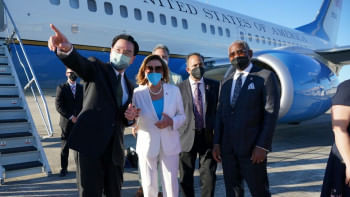

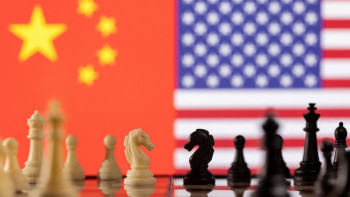





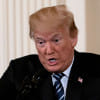
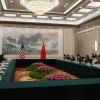


Comments